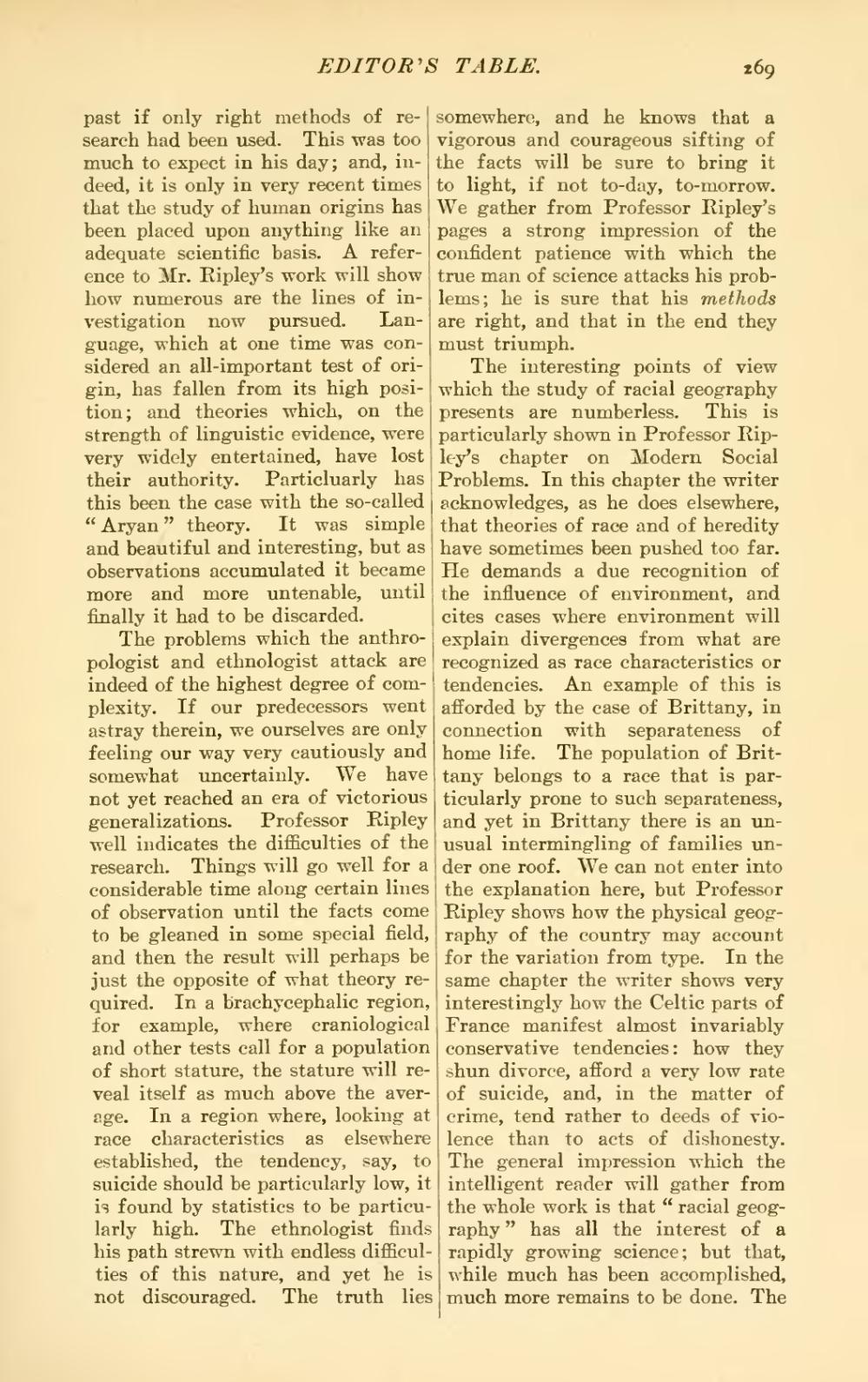past if only right methods of research had been used. This was too much to expect in his day; and, indeed, it is only in very recent times that the study of human origins has been placed upon anything like an adequate scientific basis. A reference to Mr. Ripley's work will show how numerous are the lines of investigation now pursued. Language, which at one time was considered an all-important test of origin, has fallen from its high position; and theories which, on the strength of linguistic evidence, were very widely entertained, have lost their authority. Particluarly has this been the case with the so-called "Aryan" theory. It was simple and beautiful and interesting, but as observations accumulated it became more and more untenable, until finally it had to be discarded.
The problems which the anthropologist and ethnologist attack are indeed of the highest degree of complexity. If our predecessors went astray therein, we ourselves are only feeling our way very cautiously and somewhat uncertainly. We have not yet reached an era of victorious generalizations. Professor Ripley well indicates the difficulties of the research. Things will go well for a considerable time along certain lines of observation until the facts come to be gleaned in some special field, and then the result will perhaps be just the opposite of what theory required. In a brachycephalic region, for example, where craniological and other tests call for a population of short stature, the stature will reveal itself as much above the average. In a region where, looking at race characteristics as elsewhere established, the tendency, say, to suicide should be particularly low, it is found by statistics to be particularly high. The ethnologist finds his path strewn with endless difficulties of this nature, and yet he is not discouraged. The truth lies somewhere, and he knows that a vigorous and courageous sifting of the facts will be sure to bring it to light, if not to-day, to-morrow. We gather from Professor Ripley's pages a strong impression of the confident patience with which the true man of science attacks his problems; he is sure that his methods are right, and that in the end they must triumph.
The interesting points of view which the study of racial geography presents are numberless. This is particularly shown in Professor Ripley's chapter on Modern Social Problems. In this chapter the writer acknowledges, as he does elsewhere, that theories of race and of heredity have sometimes been pushed too far. He demands a due recognition of the influence of environment, and cites cases where environment will explain divergences from what are recognized as race characteristics or tendencies. An example of this is afforded by the case of Brittany, in connection with separateness of home life. The population of Brittany belongs to a race that is particularly prone to such separateness, and yet in Brittany there is an unusual intermingling of families under one roof. We can not enter into the explanation here, but Professor Ripley shows how the physical geography of the country may account for the variation from type. In the same chapter the writer shows very interestingly how the Celtic parts of France manifest almost invariably conservative tendencies: how they shun divorce, afford a very low rate of suicide, and, in the matter of crime, tend rather to deeds of violence than to acts of dishonesty. The general impression which the intelligent reader will gather from the whole work is that "racial geography" has all the interest of a rapidly growing science; but that, while much has been accomplished, much more remains to be done. The

